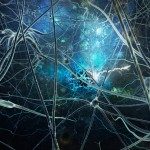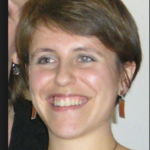Link to Pubmed [PMID] – 36932179
Link to DOI – 10.1038/s41386-023-01563-x
Neuropsychopharmacology 2023 May; 48(6): 963-974
A link between gut dysbiosis and the pathogenesis of brain disorders has been identified. A role for gut bacteria in drug reward and addiction has been suggested but very few studies have investigated their impact on brain and behavioral responses to addictive drugs so far. In particular, their influence on nicotine’s addiction-like processes remains unknown. In addition, evidence shows that glial cells shape the neuronal activity of the mesolimbic system but their regulation, within this system, by the gut microbiome is not established. We demonstrate that a lack of gut microbiota in male mice potentiates the nicotine-induced activation of sub-regions of the mesolimbic system. We further show that gut microbiota depletion enhances the response to nicotine of dopaminergic neurons of the posterior ventral tegmental area (pVTA), and alters nicotine’s rewarding and aversive effects in an intra-VTA self-administration procedure. These effects were not associated with gross behavioral alterations and the nicotine withdrawal syndrome was not impacted. We further show that depletion of the gut microbiome modulates the glial cells of the mesolimbic system. Notably, it increases the number of astrocytes selectively in the pVTA, and the expression of postsynaptic density protein 95 in both VTA sub-regions, without altering the density of the astrocytic glutamatergic transporter GLT1. Finally, we identify several sub-populations of microglia in the VTA that differ between its anterior and posterior sub-parts, and show that they are re-organized in conditions of gut microbiota depletion. The present study paves the way for refining our understanding of the pathophysiology of nicotine addiction.








